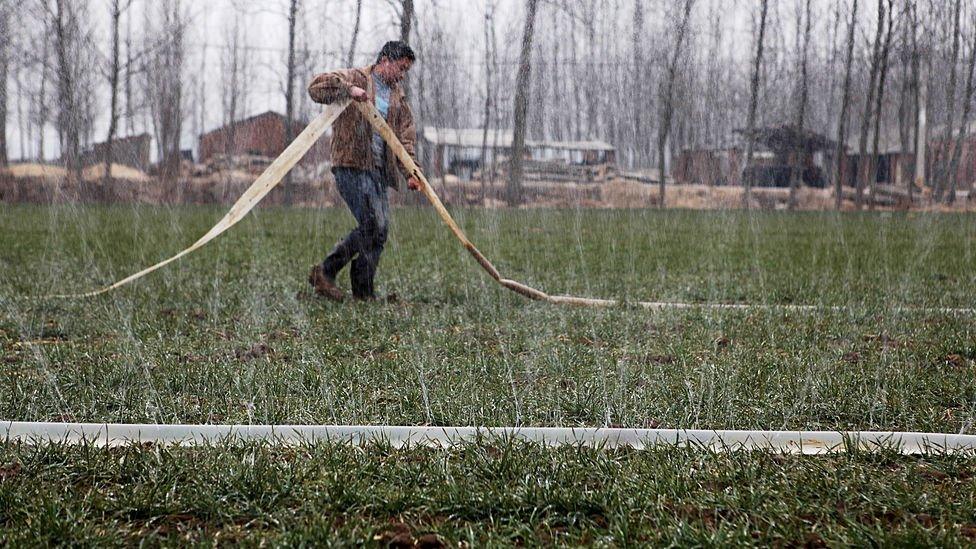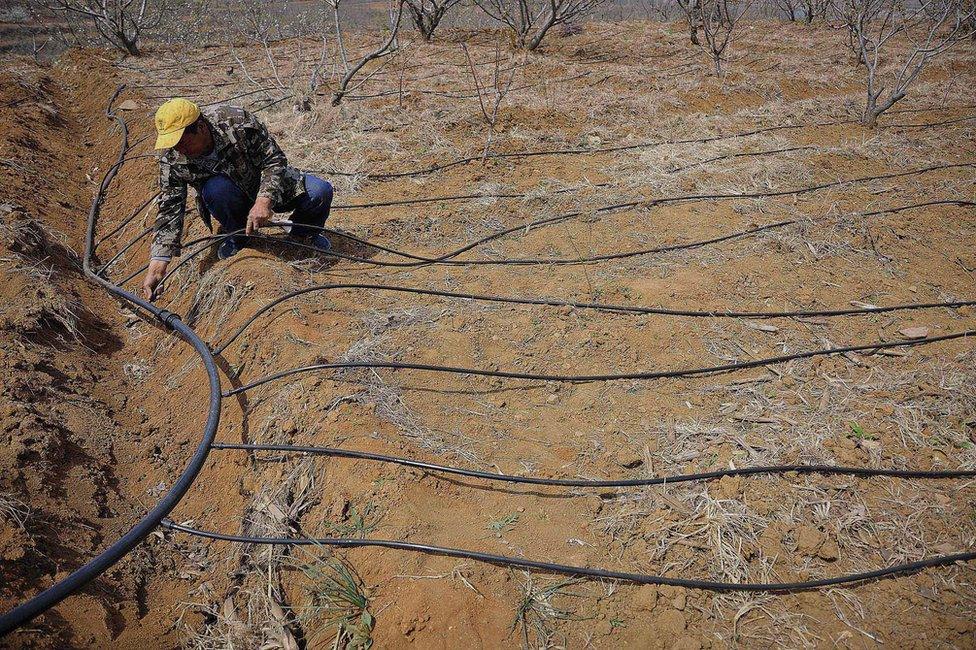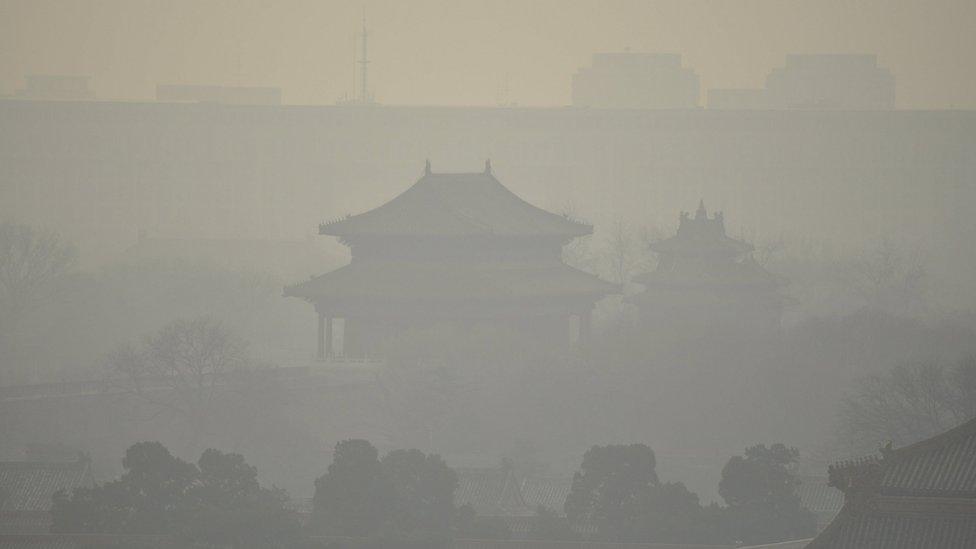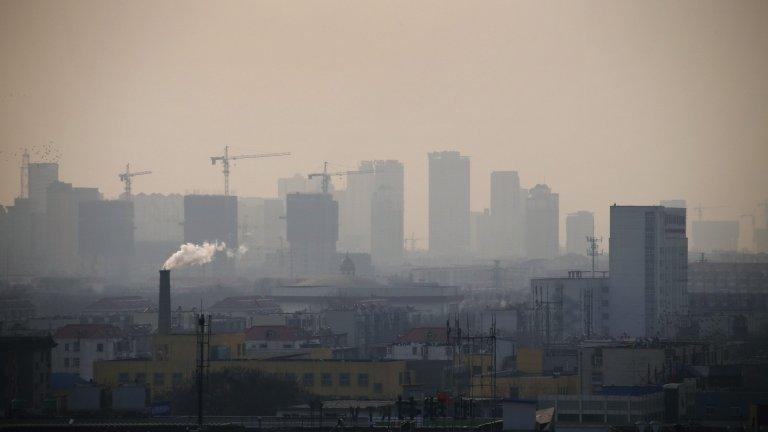China pollution: Over 80% of rural water in north-east 'undrinkable'
- Published

The water ministry said it focused on testing rural wells in the north as the area was known to have "water problems"
More than 80% of rural wells in China's north-east contain water unsafe for drinking, water ministry officials say.
But they insisted that the water being supplied to urban areas across the country was still safe.
The figures come amid rising concerns for the environment affecting water and air quality, with the government seeking to cut down on pollution.
Much of that focus is targeted on the industrial north, which is one of the country's most heavily polluted areas.
The water ministry last week released a report, external (in Chinese) showing most of the samples drawn from over 2,000 shallow underground wells in the north and east in 2015 were of poor quality:
More than 30% were of Grade IV quality, which is suitable only for industrial and agricultural use
Nearly 50% were Grade V, which is water unfit for human consumption of any type
The report, covered widely by local media, drew concern about drinking water in general.

A farmer irrigating his land in the eastern province of Shandong. Most of the water from rural wells in the north-east is undrinkable
The ministry on Monday clarified in a statement, external (in Chinese) that the result only pertained to shallow wells serving those in the rural north-east.
It said it had focused on testing that region as it was known to have "comparatively acute water problems".
The ministry said drinking water for urban areas across the country came from deep underground aquifers which had water of "overall good quality", with 85% meeting national water quality standards.
However, the BBC's East Asia Editor Celia Hatton says this has done little to satisfy some environmentalists who note that China will have to dig deeper and deeper to find water that is clean enough for farms, and to support millions still living in the countryside.
China has pledged to improve environmental standards and cut down on industrial pollution, even as it grapples with a slowing economy that still relies significantly on heavy industry.
Part of its recently unveiled five-year plan for the economy focuses on improving water and soil quality.
- Published20 January 2016

- Published16 July 2015
- Published18 April 2014
